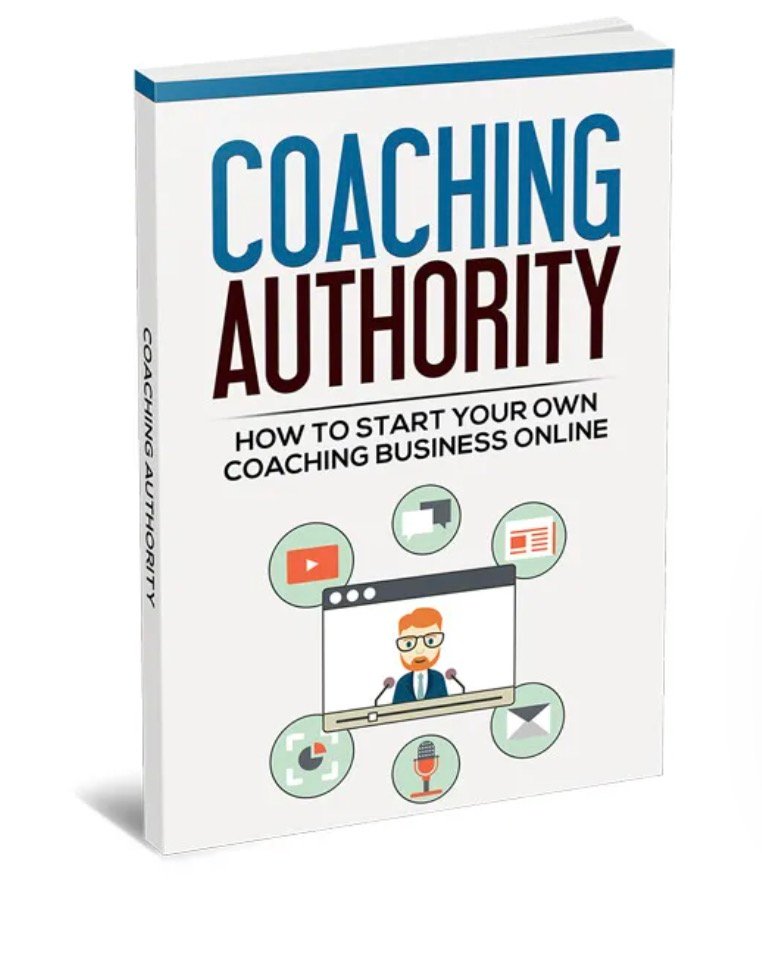According to ICF research, roughly 1 in 5 people in the U.S. have used a life coach or mentorship. Around 3 to 5% of adults globally engage in life coaching services. They are yearning for clarity, direction, and personal growth. Life coaching empowers clients to navigate challenges and achieve their goals through a transformative process.
Life coaching is not merely about setting targets; it’s a collaborative partnership that facilitates self-discovery and fosters resilience. A life coach guides clients to clarify goals, overcome limits, and create strategies for career, relationships, or well-being.
A life coach provides guidance to help clients recognize aspirations, overcome limiting beliefs, and create strategies to reach their potential. Clients want to improve their career, relationships, or well-being. A life coach acts as a catalyst for change. The coach encourages constructive self-reflection.
Engaging in life coaching helps clients gain new perspectives and create a values-aligned roadmap to fulfillment.
This article explores life coaching techniques and how you can guide clients to personal and professional success.
Learn how becoming a life coach can empower others to create their envisioned life.

Understanding what is life coaching.
Life coaching helps clients explore goals, overcome obstacles, and create growth strategies with personalized support and accountability. For those considering a career in this field, pursuing a life coach certification can enhance your credibility and skills.
Specializing with spiritual or Christian life coach certification helps you cater to specific audiences effectively. Moreover, resources for life coach certification online free can offer entry points for aspiring coaches to gain foundational knowledge. Life coach salaries vary widely based on experience, niche, and location, reflecting the demand for skilled professionals.

Exploring life coach salary expectations.
When contemplating a career in life coaching, it is essential to understand the salary landscape linked to this profession. Life coach salaries can vary widely based on factors like experience, niche specialization, and geographic location. As you hone your skills and build your reputation, you find that your earning potential increases significantly. Those who focus on specific areas, like spiritual or Christian life coaching, attract a dedicated clientele. These clients are willing to invest more in their personal development. This can enhance your financial prospects.
The salary for life coaches can vary widely. It depends on experience, location, and niche. It also varies on whether they work independently or through a company. On average:
- Entry-level life coaches can earn around $30,000–$50,000 annually.
- Experienced life coaches earn between $50,000–$100,000 per year.
- Top-tier life coaches or those with a specialized niche can make $100,000 or more. They achieve this especially if they work with high-profile clients or offer premium services.
Hourly rates for life coaches typically range from $50 to $300 per session, depending on their skill and client base.
The shift towards online coaching has broadened the clientele base for many professionals. This transition allows for increased flexibility. There is also the potential to reach individuals globally. By leveraging effective life coaching techniques, you can create valuable sessions that justify higher rates. As you gather testimonials and success stories, your credibility grows. This growth further enhances your ability to command a competitive salary in the dynamic coaching industry.
Life Coach Training
If you’re interested in becoming a certified life coach, many organizations offer courses. Institutions and coaching associations give certifications and even degrees in life coaching. Here are some of the most reputable options:
1. International Coaching Federation (ICF)
- Programs: ICF does not directly offer training but accredits programs that meet their rigorous standards. These programs offer ICF-approved certifications at different levels. The levels include Associate Certified Coach (ACC), Professional Certified Coach (PCC), and Master Certified Coach (MCC).
- Reputation: ICF certification is often considered the gold standard in coaching and widely recognized globally.
- Find ICF-Accredited Programs: You can search for ICF-accredited coaching programs on their website.
2. Institute for Life Coach Training (ILCT)
- Courses: ILCT offers a Life Coach Certification Program. It also provides specialty training in areas like wellness, career, and relationship coaching.
- Certification Pathways: ILCT’s program is approved by the ICF, enabling graduates to pursue ICF certification if they choose.
- Unique Aspects: They offer niche-specific training for coaches who want to specialize in particular fields.
3. Coach Training Alliance (CTA)
- Programs: CTA offers the Certified Coach Program, covering core coaching skills, ethical standards, and business strategies for coaches.
- Certification: Their Certified Coach Program is ICF-accredited, which allows graduates to meet the ICF’s certification standards.
- Approach: CTA provides flexible, self-paced online courses as well as mentorship from experienced coaches.
4. Coaching Training Institute (CTI) / Co-Active Training Institute
- Courses: CTI offers the Co-Active Coach Training program, which emphasizes a blend of relationship-building and personal transformation skills.
- Certification: Graduates can pursue ICF certification through CTI’s recognized program.
- Recognition: Known for its Co-Active coaching approach, CTI is one of the oldest and most respected coaching training organizations.
5. Center for Credentialing & Education (CCE)
- Programs: CCE offers the Board Certified Coach (BCC) credential, which requires a combination of education and experience in coaching.
- Accreditation: While not the same as ICF, BCC certification is well-respected and recognized in the coaching field.
- Distinctive Feature: CCE has specific coursework and supervised experience requirements. This makes it a choice for those who want a non-ICF path.
6. The Life Coach School
- Programs: The Life Coach School offers a Life Coach Certification Program that focuses on self-coaching and business-building skills.
- Training Style: Their program uses the “Model,” a coaching method developed by the founder, Brooke Castillo.
- Audience: Popular among those interested in a straightforward, results-oriented approach to coaching, often in personal development and mindset work.
7. Udemy and Coursera (Various Providers)
- Programs: These platforms offer introductory courses, training sessions, and certificates from various coaches and institutions.
- Certification: While these are generally not ICF-certified, they can serve as affordable entry points into coaching basics.
- Convenience: These platforms are self-paced and flexible. They are suitable for people who want to explore coaching skills. This can be done before committing to a full certification program.
8. Fielding Graduate University
- Programs: Fielding offers a Graduate Certificate in Evidence-Based Coaching, ideal for those looking for an academic approach.
- Degrees: You can pursue this as a standalone certificate or integrate it into a master’s or doctoral program.
- Accreditation: ICF-accredited, making it suitable for those wanting to pursue a deep academic understanding of coaching.
9. University-Based Programs (e.g., Georgetown University, New York University)
- Programs: Some universities offer certification or continuing education programs in leadership and executive coaching.
- Degrees: Programs often focus on executive or leadership coaching, designed for those with an interest in corporate coaching.
- Certification: Many are ICF-approved, which is ideal if you aim to obtain ICF certification and enter the business or executive coaching field.
10. iPEC Coaching
- Programs: iPEC offers an in-depth training and certification program focusing on Energy Leadership and core coaching competencies.
- Certification: iPEC’s program is ICF-accredited, allowing graduates to pursue ACC, PCC, or MCC certifications.
- Specialization: iPEC’s Energy Leadership Index (ELI) assessment is unique to their program and valued by many clients and organizations.

Where to get Christian life coach certification.
Christian life coaches are highly regarded in the industry. Consider looking into programs specifically designed for Christian life coaches, which often integrate biblical principles with coaching techniques. The Christian Coaches Network and the Life Coach School are examples of organizations. They offer tailored certification opportunities. These opportunities combine spiritual growth with practical coaching skills.
Exploring local workshops or retreats can enhance your understanding of life coaching. These events also allow you to connect with like-minded individuals. Besides traditional certifications, many coaches are finding value in online options that offer flexibility and accessibility. Free online life coach certification programs offer a valuable, low-cost way to start a rewarding career and increase earnings.
Effective life coaching techniques to apply.
Incorporating various life coaching techniques can significantly enhance your effectiveness as a coach. Active listening involves fully engaging with clients by focusing on their words, emotions, and body language. This technique fosters trust and opens up deeper conversations, allowing you to guide your clients more effectively toward their goals.
Additionally, employing goal-setting strategies can help your clients clarify their aspirations. Using approaches such as the SMART criteria (Specific, Measurable, Achievable, Relevant, Time-bound), they can create actionable plans. Encouraging clients to break down large objectives into manageable steps can empower them. They will take consistent action. This will lead to sustained progress.
Life coach techniques
- Active listening for deeper understanding and rapport building.
- Goal-setting techniques for clear, achievable objectives.
- Accountability techniques to track progress and motivation.
- Visualization exercises to enhance focus and clarity.
- Tailored strategies for spiritual life coach certification success.
- Free online life coach certification resources for beginners.
Moreover, incorporating mindfulness and visualization exercises can further augment your coaching sessions. These techniques not only promote self-awareness but also help clients envision their future success. As a life coach, adapt strategies to meet each client’s unique needs and preferences.
Engaging with ongoing professional development is crucial. It includes workshops focused on specific coaching techniques. Pursuing spiritual life coach certification can provide you with a diverse toolkit. This helps you support your clients’ journeys effectively. By mastering these techniques, you can elevate your practice. You can increase your potential life coach salary. At the same time, make a meaningful impact on your clients’ lives.
Finding life coach certification online free.
If you are interested in beginning a career in life coaching, consider budget-friendly options. Look into life coach certification online free. This can be a valuable step. Many platforms offer introductory courses that cover essential principles and techniques. These courses allow you to gain foundational knowledge without a financial investment. Pursuing certifications, including spiritual life coach certification, can deepen your understanding of specific philosophies. Christian life coach certification also broadens your framework. These certifications further enhance your coaching practice.
When you earn a certification, you enhance your position in the market. This can help you earn a competitive life coach salary. Clients often seek qualified professionals. Engaging in self-directed learning through free online resources equips you with theoretical knowledge. It also prepares you to apply effective life coaching techniques in real-world scenarios. As you embark on this journey, use the wealth of information available. Refine your skills and expand your coaching repertoire.
Life Coach: The importance of coaching credentials.
Establishing coaching qualifications is essential in differentiating yourself in a competitive field. Clients are increasingly discerning. They often seek assurance that their coach possesses not only the necessary skills but also recognized qualifications. When you invest time and effort into obtaining certifications, you show a commitment to professional development. These certifications, like spiritual life coach certification or Christian life coach certification, show that you adhere to ethical standards. This commitment can significantly enhance your credibility.
Moreover, having formal credentials can directly impact your earning potential. A solid foundation in coaching techniques, paired with recognized certifications, positions you favorably to command a higher life coach salary. Clients are more to trust and invest in coaches who have validated their skill through accredited programs. Ultimately, the pursuit of coaching credentials strengthens your practice. It also builds confidence in your clients. This fosters a productive coaching relationship.
How to choose a niche.
Identifying a specific niche is crucial for establishing a successful coaching practice. When you focus on a particular area of expertise, you attract a targeted audience. This audience resonates with your unique offerings. Consider your passions, skills, and personal experiences when selecting a niche. This alignment can foster authenticity and deeper connections with clients. Whether you lean toward spiritual guidance, personal development, or career coaching, focus on a well-defined niche. It allows you to tailor your marketing strategies. It helps in aligning course content to meet the specific needs of your ideal clients.
Furthermore, exploring various niches can help you discover where your strengths and interests intersect with market demand. Researching statistics on life coach salary in different areas sheds light on which niches are more lucrative and sustainable. Additionally, think about the availability of resources. These include life coach certification online free programs. They can bolster your expertise in your chosen field. Choosing a niche that excites you is crucial. Ensure it also meets the needs of your target audience. This choice will pave the way for a fulfilling coaching career.

Building rapport with your clients.
Establishing a genuine connection with clients enhances the coaching experience, fostering trust and open communication. One effective approach is to actively listen and empathize with your clients’ concerns, making them feel valued and understood.
Reflective listening and asking open-ended questions can foster deeper conversations. These methods enable clients to express their thoughts and feelings freely. This supportive environment encourages them to share their vulnerabilities. This sharing ultimately leads to more productive coaching sessions. It also results in meaningful progress in their personal journeys.
As you cultivate these relationships, you can naturally integrate your expertise into your interactions. This expertise may include areas like life coaching techniques. It can also involve specializations such as spiritual life coach certification.
Understanding your clients’ unique backgrounds and aspirations lets you tailor your methods. It also helps in building credibility. Whether you choose a Christian life coach certification or another path, position yourself as a knowledgeable and approachable guide. This will empower your clients. It paves the way for transformative results.
Setting achievable goals with coaching.
Guide your clients toward their personal and professional aspirations, setting achievable goals becomes a fundamental aspect of the coaching process. Collaborate with clients to identify specific, measurable, achievable, relevant, and time-bound (SMART) goals. This empowers them to take actionable steps. These steps lead to meaningful change.
This structured approach enhances motivation. It also instills a sense of accountability. Clients recognize the progress they make over time. You can integrate your knowledge from life coach certification programs. Whether it’s a Christian life coach certification or a more generalized life coaching certification, these certifications offer the necessary tools. They help you effectively navigate this goal-setting journey.
Utilizing various life coaching techniques, you can assist clients in breaking down larger ambitions into smaller, manageable tasks. This strategy alleviates feelings of overwhelm. It fosters a positive mindset. It encourages clients to celebrate their achievements and stay committed to their paths. As a coach, your role is to guide clients in realizing their potential. You help them make progress toward their goals. You assist them in transforming their visions into reality. Here are our list of free and paid resources for tools to help you get started.
Summary
To summarize, understanding what life coaching entails can empower you to make informed decisions about your personal and professional development. A life coach can serve as a valuable partner as you navigate life’s complexities. They help clarify your goals. They also identify obstacles and develop actionable strategies to achieve your desired outcomes.
You might seek guidance in your career, relationships, or overall well-being. The insights and support of a skilled life coach can facilitate meaningful change. Embracing the life coaching process may ultimately lead you to a more fulfilling and purpose-driven life, aligning your actions with your core values and aspirations.
FAQ
What is the primary purpose of life coaching, and how does it differ from therapy or counseling?
Life coaching helps set and achieve goals, focusing on future growth, action, accountability, and overcoming obstacles.Ultimately, coaching empowers you to create a fulfilling life, while therapy works to heal and understand your past experiences.
What qualifications or certifications should one look for when choosing a life coach?
When choosing a life coach, consider their qualifications. Ensure they have a certification from a reputable coaching organization, like the International Coach Federation (ICF). Check their educational background and any specialized training relevant to your needs. Experience matters, so inquire about their coaching hours and client testimonials. Additionally, assess their approach and ensure it aligns with your goals. A good coach should also possess strong interpersonal skills and emotional intelligence. Finally, trust your instincts—choose someone you feel comfortable with and who inspires confidence in their ability to help you succeed.
How can life coaching benefit individuals in various areas of their lives, such as career, relationships, and personal development?
Life coaching can empower you to identify and achieve your goals across different areas of your life. In your career, a coach can help you clarify your ambitions, enhance your skills, and boost your confidence. For relationships, they offer strategies to improve communication and resolve conflicts. In personal development, a coach supports you in building self-awareness, setting priorities, and fostering positive habits. Life coaching provides guidance, accountability, and a fresh perspective. It enables you to unlock your potential. It helps create a more fulfilling life overall.
What are some common techniques or tools used by life coaches to help clients achieve their goals?
As a life coach, you often use techniques like goal setting, visualization, and active listening to guide your clients. Tools such as worksheets, journals, and assessment tests help clarify their values and aspirations. You might employ the SMART criteria to create actionable goals and use accountability measures to keep them on track. Additionally, mindfulness practices and positive affirmations can enhance their motivation and focus. By fostering a supportive environment, you empower clients to explore their potential and develop strategies tailored to their unique paths.
How do clients typically measure progress and success in their life coaching journey?
Clients typically measure progress through personal goal achievement. They also measure it through increased self-awareness. Additionally, improved emotional well-being is a key indicator of success. You might track milestones and celebrate small victories along the way. Regular self-reflection and feedback sessions with your coach can help you assess changes in mindset, behavior, and relationships. Additionally, you may notice enhanced clarity in decision-making and a greater sense of fulfillment in your life. Ultimately, success is about how well you align your actions with your values and aspirations, making adjustments as you grow.



